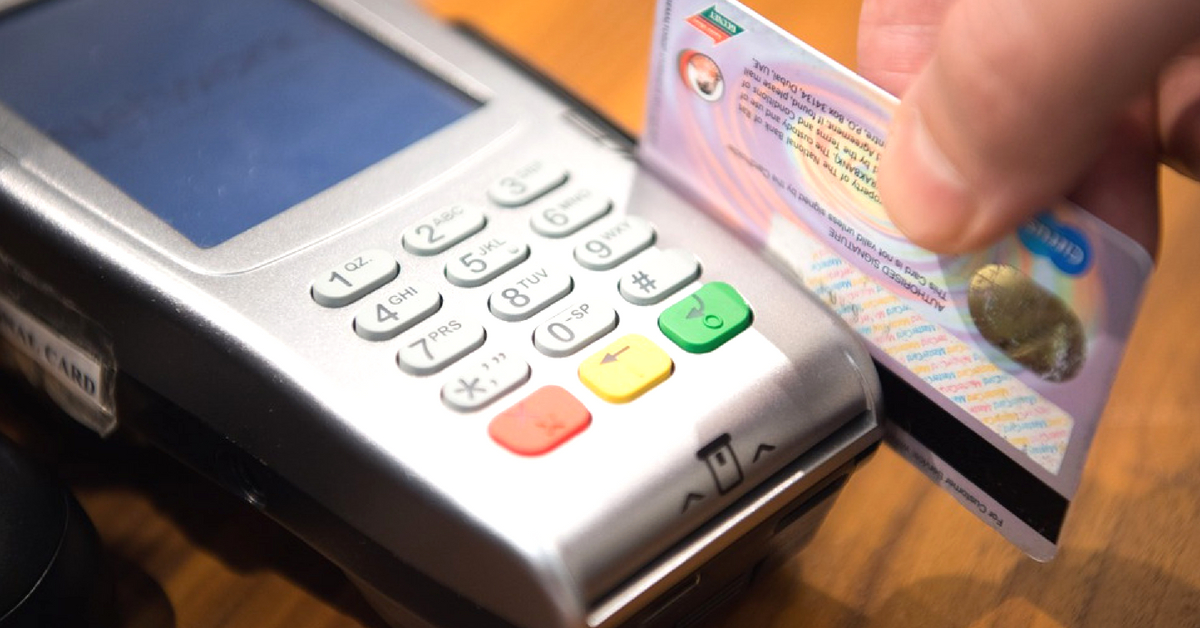It was November 2011, and 20-year-old Dipika Pallikal was competing in the Cathay Pacific Sun Hung Kai Squash Open. She was at a hotel and was asked to pay a bill for 490 Euros (Rs 3000 as per the currency rates then).
With over Rs 2 lakh in the account, she confidently swiped the debit card, that was issued to her by Axis Bank.

However, the transaction was repeatedly declined, and the message ‘Link Error,’ kept showing up. Dipika was humiliated, as the incident took place in front of other athletes, some of whom passed snide remarks about her credit-worthiness. She was unsuccessful in her pursuit of the trophy, too.
A few months later, Dipika filed a complaint with the District Consumer Disputes Redressal Forum in Chennai, claiming compensation for mental agony. The amount she asked for was Rs 10 lakh.
Axis Bank, in their defence, said that the incident was beyond their control, as machine failure does occur on occasion. Two years from the date of filing the complaint, the top-ranked squash player was awarded a compensation of Rs 5 lakh and an additional Rs 5,000 for deficiency in service.
At the time of the judgment, her lawyer, Chennai-based Sanjay Pinto said, “We are very happy with the verdict. Service providers like banks cannot leave their customers in the lurch, wash their hands off and hide behind disclaimers like Force Majeure.”
Perhaps you’ve heard this bit of news. Perhaps you’ve even had your own debit card fail—in India or abroad. Did you do anything about it? Did you even think of doing something about it? Probably not.
But it happens all the time. Debit and credit cards repeatedly fail, leaving you stranded. In case it ever happens again to you, here’s what you can do:
1) Consumer Protection in India
Whenever you are unsatisfied with the quality of service, you can file a case in consumer court within two years of the grievance. According to the Consumer Protection Act, a person who buys a product or purchases a service, for use and not for commercial purposes, qualifies as a consumer.
In addition to seeking damages, you can also seek compensation for mental agony or stress, as Deepika did. And yes, you can represent yourself (although it is not always advisable).
2) Filing a Consumer Case
a) Send a Notice: Before you go to court, you must send the bank a legal notice, with all the facts of the case.
b) File the complaint: If the notice doesn’t settle the matter, it is time to go to court. The application should have the notice, the name of the company, the details of the case, documents in support and the compensation you seek.
c) Pay court fees: Court fees are nominal. The amount depends on the jurisdiction of the court you file the case in. There are three levels at which a consumer can file a case. Each has its own jurisdiction and powers.
Level 1—District Forum: There is a District Forum for every district, and it settles disputes in its jurisdiction involving claims of up to Rs 20 lakh.
For claims of up to Rs 1 lakh (for Antyodaya Anna Yojana card holders): Nil
For claims of up to Rs 1 lakh: Rs 100
For claims of Rs 1 lakh to Rs 5 lakh: Rs 200
For claims of Rs 5 lakh to Rs 10 lakh: Rs 400
For claims of Rs 10 lakh to Rs 20 lakh: Rs 500
Level 2—State Commission: The State Commission hears cases where the value of the claim is between Rs 20 lakh and Rs 1 crore and those cases within the state which have been appealed against the District Forum’s decision.
For claims of Rs 20 lakh to Rs 50 lakh: Rs 2,000
For claims of Rs 50 lakh to Rs 1 crore: Rs 4,000
Level 3—National Consumer Disputes Redressal Commission: The NCDRC hears cases which have been appealed against the decision of the State Commission and those in which the claimed sum exceeds Rs 1 crore.
For claims above Rs 1 crore: Rs 5,000
Is it worth the trouble?
Well, if you were affected by the bank, yes, it is. The courts have ensured that the procedure is simple so that individuals can take on entities larger than themselves. On the other hand, there are a few things to note before taking a matter to court.
a) Legal Counsel: While consumer courts do not require a lawyer, and you can represent yourself, it may not be the best option if you really want a judgement in your favour.
As per the legal procedure, the consumer has to take the onus to prove his case. The judge or court staff will not do this for you. They may assist you in filing the case, but when it comes to proving it, the responsibility lies with you.
b) Expenses: While filing a consumer court case isn’t expensive, there are several other expenses attached, such as litigation fees, travel expenses, stationery, etc.
c) Time & Effort: Large companies typically appeal all judgements of the District Court, dragging on matters for years. Be ready for some effort.
You may also like: You Can Claim Rs. 100 per Day in Case of a Failed ATM Transaction
The Consumer Protect Act gives laymen the opportunity to take on large institutions and hold them accountable. So the next time you feel you’ve been wronged by an organisation—a bank or any other—you know what to do.
Like this story? Or have something to share?
Write to us: contact@thebetterindia.com
Connect with us on Facebook and Twitter.
NEW: Click here to get positive news on WhatsApp!
If you found our stories insightful, informative, or even just enjoyable, we invite you to consider making a voluntary payment to support the work we do at The Better India. Your contribution helps us continue producing quality content that educates, inspires, and drives positive change.
Choose one of the payment options below for your contribution-
By paying for the stories you value, you directly contribute to sustaining our efforts focused on making a difference in the world. Together, let's ensure that impactful stories continue to be told and shared, enriching lives and communities alike.
Thank you for your support. Here are some frequently asked questions you might find helpful to know why you are contributing?

